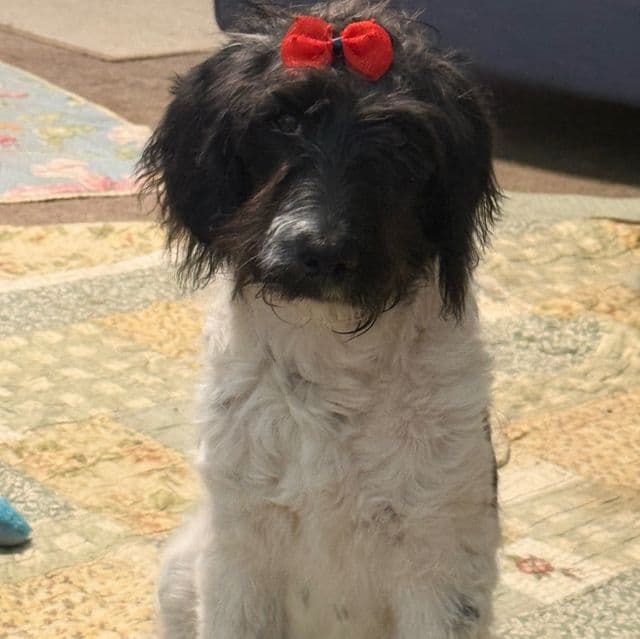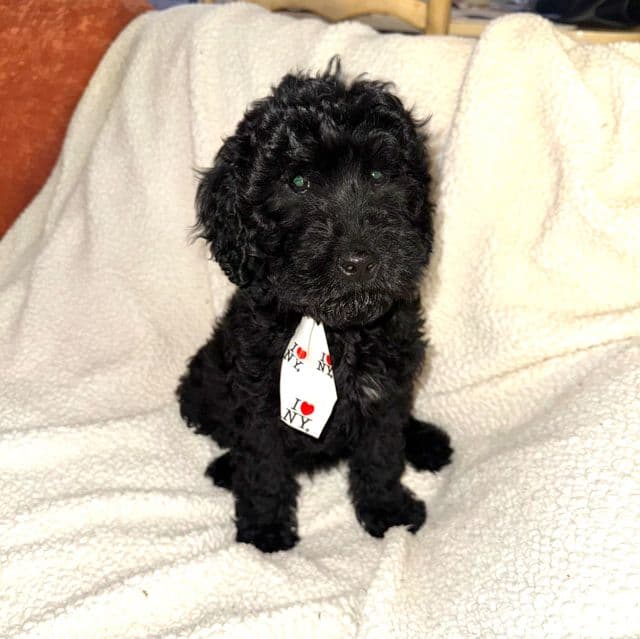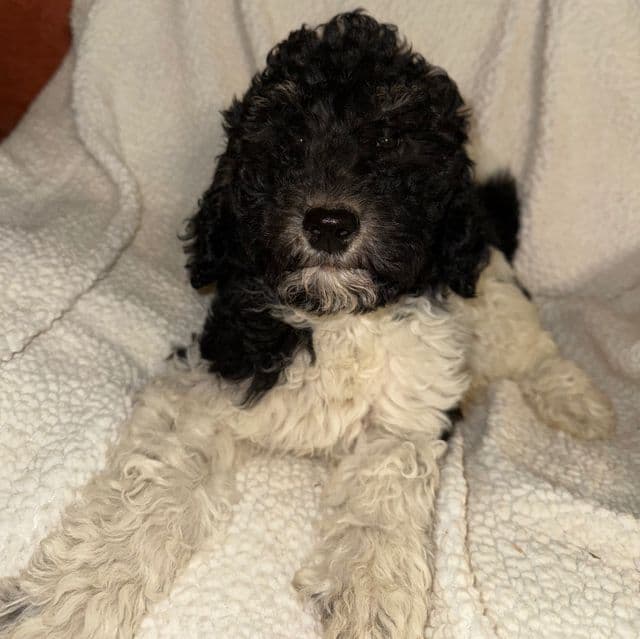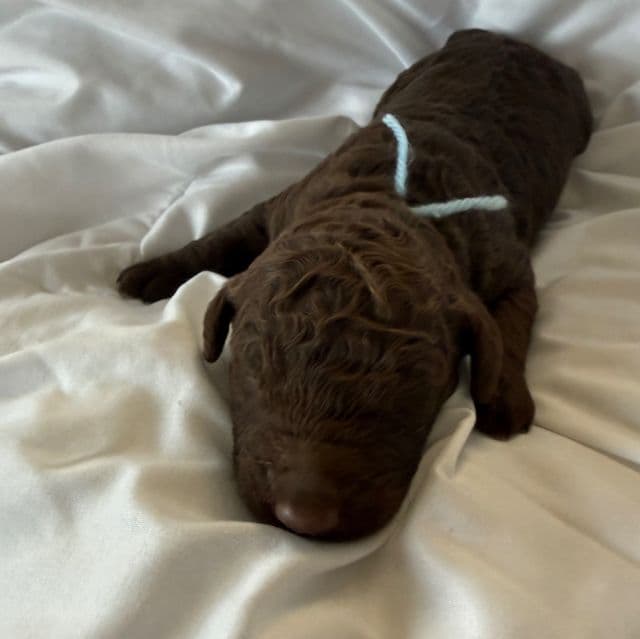When Do Puppies Get Easier? (And How to Survive Until Then)
By Mawoo Pets · 9 min read
Last updated: April 18th, 2025

Surviving the first six months with a new puppy often leads owners to think: "When does having a puppy get easier?" It's a challenging yet fun and exciting journey. Having a puppy is exhausting at times, and there might even be days where you ask yourself if you were really ready to get a new dog. We get it!
Don’t panic–there is a big, beautiful light at the end of the tunnel. With age, patience and consistent training, you will both come through it just fine. In fact, much better than fine! Right now, the two of you are forming a lifelong bond amidst all the chaos.
So, when do puppies get easier? Let’s talk about how long this difficult stage will last and what you can do to make life with a new puppy easier.
When do Puppies Get Easier?
Many owners find relief from knowing that puppies start to get easier at around four to five months of age, as they transition from the demanding puppy stage to a more manageable period. By this time, most puppies are typically potty trained and settled into their new home and routine. They’re also more able to focus on learning new tasks and better able to remember yesterday’s lessons.
So if you're worried, keep in mind that your new furry family member will start to calm down very soon.
What are the Puppy Blues and How Long do they Last?
The puppy blues are real and you’re not the first new puppy parent to experience them.
The term “puppy blues” is used to describe the feelings of frustration and discouragement some people feel after bringing home a new puppy. That feeling of "When does it get easier with a puppy?" It’s natural to feel overwhelmed by your brand new bundle of nerves and energy, but the feeling will pass.
Once the initial euphoria of having your very own fluffy bundle of joy wears off, the realities of raising a puppy sink in. Puppies chew up furniture, shoes and really anything they can get their tiny teeth around. They bark, pee in the wrong place, and can’t sit still for training or even a little cuddle. As a new owner, chances are good that you’re just plain exhausted.
Without a doubt, raising a puppy is tough at times…and a true test of patience. It’s totally normal for new puppy parents–especially first-time puppy parents–to feel overwhelmed and unsure about their decision to get a puppy.
The puppy blues might come and go, or they might stick with you for the first few months. The thing to remember is that this stage is temporary. With patience, consistent house rules, training, socialization and bonding, your future with your new puppy will look brighter before you know it.
How to Avoid the Puppy Blues
The best way to avoid the puppy blues is to set realistic expectations for your life as a new dog owner. Before you bring your new puppy home, do some research to get a good understanding of what life will be like for the first few months with your new puppy.
Prepare yourself mentally for the lack of sleep, loss of personal time and potty accidents in the house! Don’t kid yourself that this won’t happen to you, because it will and you need to take it all in stride. Knowing what to expect also gives you the opportunity to plan for all eventualities.
Of course, things can and will come up that you haven’t planned for. When this happens, don’t hesitate to contact your breeder, your vet or a professional trainer for advice and support. And if you do still get the puppy blues, don’t beat yourself up over it. It’s normal and it will pass!
When Does Having a Puppy Get Easier?
Every puppy learns at a different pace, but for most owners, having a puppy gets easier with age. Here’s what to expect during the first six months.
Months 1-2

During the first eight weeks of life, young puppies learn basic life skills from their mother and by interacting with their littermates. They learn how to walk, play, explore and communicate with other dogs.
This is also when puppies develop fear as a way to protect themselves from predators and dangerous creatures (like humans!) so it’s a crucial time for positive social experiences.
During month two, puppies are ready to learn basic potty-training skills. Although they can’t hold their bladders for very long, frequent potty breaks and consistent positive reinforcement will get them off to a strong start.
Some breeds may have specific needs -- for instance, read our complete guide on bringing home a French Bulldog puppy.
Months 3-4
 Puppies generally leave their mother and siblings when they
are around 8 to 12 weeks old. This is an important time for bonding, brain development and learning basic skills. Providing lots of comfortable, positive new experiences in a safe environment is crucial for their healthy social development.
Puppies generally leave their mother and siblings when they
are around 8 to 12 weeks old. This is an important time for bonding, brain development and learning basic skills. Providing lots of comfortable, positive new experiences in a safe environment is crucial for their healthy social development.
Puppies also begin to teeth at around four months, which can be painful. You can help by providing teething toys that let them chew to their heart’s content. If your puppy gets mouthy with you or your stuff, always redirect their attention to an appropriate chew toy instead.
Months 5-6
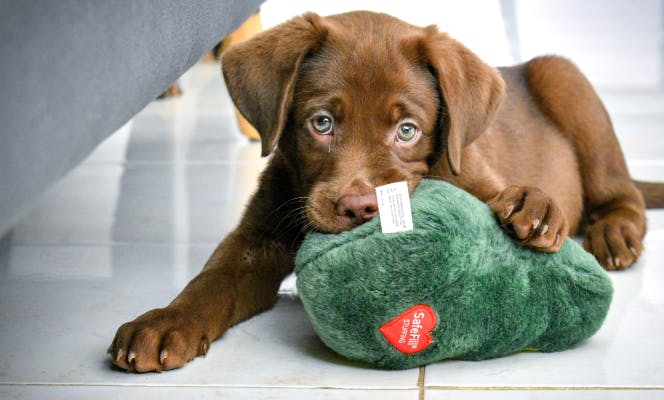 Some trainers call this age the “teenage years”
and it’s easy to see why. This is the age when a puppy’s hormones begin to develop, and he becomes a bit more assertive and independent. At this stage, your puppy will be testing boundaries. He’ll try to go where he wants and do what
he feels like! Firm guidance, patience, and positive reinforcement for good behavior are key to getting through this phase.
Some trainers call this age the “teenage years”
and it’s easy to see why. This is the age when a puppy’s hormones begin to develop, and he becomes a bit more assertive and independent. At this stage, your puppy will be testing boundaries. He’ll try to go where he wants and do what
he feels like! Firm guidance, patience, and positive reinforcement for good behavior are key to getting through this phase.
By the end of six months, teething and potty training should be complete. Now, you can take your puppy out to meet new dogs and people as often as you like–and the more the better. The worst is over, and the best is yet to come!
Tips for Surviving the First Six Months with a New Puppy
Puppies Thrive on Routines & Consistency
When it comes to housetraining, be consistent about taking your puppy outside every two hours, right after he eats, and as soon as he wakes up from a nap. Feeding the puppy on a set schedule will also help with developing a consistent potty routine.
You should also establish a set of ground rules and make sure that the entire family follows them. If one person won’t let the puppy on the furniture, but another person will, how can a puppy figure out what’s really expected of him?
Limit the Areas Your Puppy Can Access
Limiting the area your puppy can access will make your life so much easier. This way, you only have to puppy-proof a small space. You can introduce your puppy to the rest of the house gradually as he becomes housetrained and learns the rules of your home.
Consider setting up a playpen and crate in the room where you spend most of your time. When you’re supervising the puppy, you can use baby gates to keep him or her in the room with you. When you’re not able to supervise, the puppy should be in the playpen.
At night, your pup should sleep in the crate. This will prevent accidents during the night and help your puppy learn that nighttime is for sleeping. Some whining and crying during the first few nights is normal, but should subside pretty quickly as long as you’re consistent. It’s hard to hear those little cries, but they won’t last long.
Have A Plan for Potty Breaks When You’re Not Home
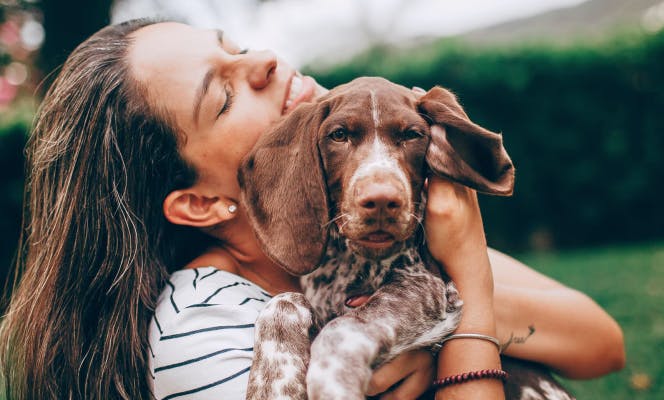
It’s good to take your puppy with you on errands or to visit friends, since it strengthens a growing dog’s social skills. Just don’t forget about potty time! Two-month-old puppies have to go to the bathroom every two hours. Puppies who are three months old need to be taken out every three hours, and so on.
If you work all day, plan for someone to come in and walk your puppy on a fixed schedule to avoid sabotaging your house-training efforts. Puppy pads may also be a viable alternative when you’ll only be away for a few hours.
Some experts recommend against using puppy pads because they teach your puppy to go to the bathroom in the house. However, many experts believe that a dog going potty in a designated area is a much better option than random accidents in the house. The decision is yours to make.
Look for Opportunities to Socialize Your Puppy
Once your puppy has received the all-clear from your veterinarian to be around other dogs, consider doggy daycare if you have to work away from home most days. Doggie daycare allows your puppy to socialize with other dogs and burn off some of that boundless energy while you get to focus on other things.
If you have a friend with a puppy or a well-mannered older dog, consider taking turns hosting playdates for your pups. Playdates with other dogs in a safe environment can also offer wonderful opportunities for your puppy to socialize while you run errands or have an evening out.
A puppy manners class is also a great place to socialize your puppy in a safe environment. Classes are good for both you and your dog, and they teach some important basic skills. More importantly, the class instructor and other puppy parents can provide advice and a support system on those days when you’re struggling.
At What Age Are Puppies Most Difficult?
That really depends on your puppy and your definition of “difficult!” For some people, puppies are the most difficult when they’re around eight to 10 weeks old and just getting started with potty training. For others, the most difficult age is at around four months when their new puppy begins teething. This is when biting and chewing can become an issue.
For some, the most difficult puppy age is those “teenage years” when he starts testing his boundaries and becoming more independent. This usually happens when puppies are around five to six months old.
Do Puppies Get Worse Before they Get Better?
Every puppy is different, but some seem to get more chaotic as time goes on. When you first bring home your tiny eight-week-old puppy, remember he’s still just a baby. Babies don’t challenge your authority. Older puppies are stronger and more confident, and they have ideas about how to behave that you probably won’t agree with.
However, this doesn’t necessarily mean that your puppy is getting worse. It just means that certain aspects of their training might be more challenging for a time. As long as you’re consistent with positive reinforcement for good behavior, things should continue to get easier as your puppy matures. This, too, will pass.
Wrapping Up
So, when do puppies get easier? Typically around 4 to 6 months of age. Calm and order will start to shine through when a puppy is mature enough to understand and remember its lessons. The more consistent you are with your training efforts, the faster your puppy will learn.
The truth is, having a puppy is exhausting and a lot of work. But the reward will be a wonderful companion and a loving lifetime bond with your dog. If you are willing to invest the energy and time into the challenges of raising a puppy, the joys of having a well-adjusted family dog are well worth the effort.
Frequently Asked Questions
When Does Owning a Puppy Get Easier in Terms of Socialization?
Socializing a puppy becomes easier typically around 3 to 6 months of age. By this time, puppies are more open to new experiences and can more easily pick up social cues from other dogs and humans. So it's a great time for obedience training and socialization
At What Age Do Puppies Become More Independent?
Puppies typically start showing signs of independence around 4 to 6 months of age. They also become easier to manage around this time, and can more effectively take on guidance and training to build good habits.
How Long Does the 'Puppy Blues' Phase Typically Last?
The duration of the 'puppy blues' varies, but most owners find it eases after the first few months as they adjust to their new routine and as the puppy becomes more trained.
Do Puppies Calm Down at 6 Months?
Many puppies start to show a calmer demeanor around 6 months, especially if they have been receiving consistent training and exercise. However, this can vary based on breed and individual temperament.
When Do Puppies Become Adult Dogs?
Puppies are generally considered adult dogs at 1 year of age, though some larger breeds may take longer to reach full maturity (say, 18 months). Puppies definitely become easier to manage as they leave their puppy stage – this is because their energy levels balance out and they also become more adept at following commands and routines.
Are There Specific Milestones When Raising a Puppy Becomes Noticeably Easier?
Key milestones include completing potty training (around 4-6 months), the end of the teething phase (around 6 months), and the onset of maturity (around 1 year).
How Can I Prepare for the Challenges of Having a Puppy?
Key preparation steps involve setting up a consistent routine, puppy-proofing your home, and planning for training, socialization, and veterinary care. It's also a good idea to consider pet insurance in case of unexpected veterinary costs.
What Are the Signs That My Puppy Is Starting to Get Easier to Manage?
Signs include more consistent obedience by your pup, fewer accidents at home, less destructive chewing, a calmer demeanor, following a more predictable routine, and better responses to training.
Related articles
Related puppies for sale
Any questions? Get in touch!
We are here to support you every step of the way. Our concierge service is here daily to answer your questions!
Chat or speak with our team Mon-Sat 9a-9p ET.
